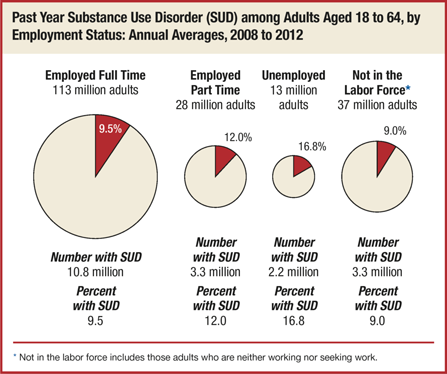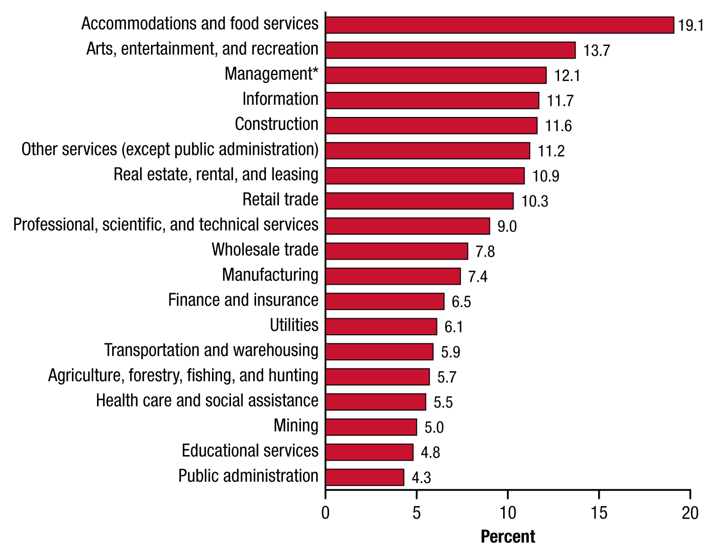Drug Addiction Among Finance Professionals

The imagery conjured in most people’s minds when they think of a drug addict is of someone slumped on a street corner or in a tattered apartment, dejected and solemn, clothes threadbare and face gaunt. And while such descriptives are often synonymous with drug addiction, it is not just people who are down on their luck who struggle with drug abuse. Most addicts hold jobs, and a significant percentage of people with drug and alcohol habits will not necessarily look like the “stereotypical addict.”
Several factors combine to make finance experts more at-risk for drug addiction than working professionals in other careers. And since finance experts who hold full-time jobs will not necessarily “look like addicts,” the family members and loved ones of such individuals need to know the signs of drug and alcohol abuse. They need to know what to look for so that if their loved one is using drugs, they can get that individual into a treatment center.
Substance Abuse in the Workplace

(Image Source: SAMHSA.gov)
The Substance Abuse and Mental Health Services Administration dispelled the myth that most addicts are unemployed. Rather, more people are employed and addicted to drugs and alcohol than people who are unemployed and addicted to drugs and alcohol. According to SAMHSA research:
- Of the 113 million adult Americans who are employed full time, approximately 9.5% are addicted to drugs and alcohol. That percentage reflects about 10.8 million people who misuse substances while working full time.
- Of the 28 million Americans employed part-time, 12% are addicted to drugs, approximately 3.3 million people.
- Of the 37 million Americans who are not in the labor force, about 9% are addicted to drugs and alcohol, approximately 3.3 million people.
- Of the 13 million unemployed American adults, about 16.8% are addicted to drugs and alcohol, approximately 2.2 million people.
In conclusion, while the unemployed demographic has the highest percentage of substance-addicted individuals, the total numbers tell a very different story. About 14.1 million addicts are either fully or partially employed, while only 2.2 million addicts are unemployed.
Finance Experts and Drug Abuse
To better understand addiction in the workforce, the Substance Abuse and Mental Health Services Administration explored addiction by industry, determining which job sectors were most prone to have employees who used drugs and alcohol. According to their data, about 7.4% of employees in the finance sector misuse alcohol, and 6.5% misuse drugs. At least 9.4% of finance experts have used drugs at least once in the past year.


Drug and alcohol misuse in the workforce carries with it more widespread harm than some might think. Quoting SAMHSA researchers as to the intent behind their study, “Substance use negatively affects U.S. industry through lost productivity, workplace accidents and injuries, employee absenteeism, low morale, and increased illness. U.S. companies lose billions of dollars a year because of employees’ alcohol and drug use and related problems.” Undoubtedly, employers need to take a more direct role in ensuring their employees receive quality addiction treatment when it is needed.
Cocaine, Opioids, and Finance
While there has yet to be a formal investigation or research project into the matter, New York Post journalists uncovered that cocaine abuse and opioid abuse had been finance career professionals’ main substance of choice. New York Post journalist John Aidan Byrne wrote that following the housing crisis and the banking sector bailouts of the 2008 recession, New York financiers struggled with life crisis after life crisis, many of them turning to drugs as a coping mechanism.
Byrne’s article quotes several opinion leaders in New York City, from former Mayor Bloomberg to university professors who’ve studied addiction in a post-housing crisis Wall Street to the doctors who meet with finance professionals.
Doctors, professors, and researchers suggested that the high-stakes nature of finance combined with personal life crisis and a serious recession all accelerated in the mid-2000s to make Wall Street and other financial areas a hotspot for opioid addiction. Many finance professionals turned to drugs when the market crashed (because they had their net worth invested in markets that went under almost overnight).
Signs of Addiction
For those concerned that their loved one may be using drugs and alcohol but is not forthcoming about it, there are signs to look for:

- Neglecting responsibilities. When someone becomes addicted to drugs and alcohol, their drug of choice becomes the priority, not their family, job, or personal health and safety.
- Taking unnecessary risks. People addicted to drugs will often take unnecessary risks, such as driving under the influence, spending time with dangerous individuals, breaking the law, engaging in unsafe sexual activities, sharing needles, and making spur-of-the-moment, unwise decisions.
- Experiencing legal trouble. People who use drugs and alcohol will often get in legal trouble, often resulting from using substances and driving or getting in an altercation with someone else while under the influence of substances.
- Problems in relationships. Someone who is hooked on drugs and alcohol will start prioritizing their substance over their loved ones, which can lead to problems in their family life.
- Problems in the workplace. Drug addiction can lead to an individual underperforming at work, missing work, or being under the influence of substances while at work.
- Money problems. Someone who is addicted to drugs may often ask for money. They might give odd reasons for why they need that money.
- Abandonment of activities and hobbies once considered important. Someone who is using drugs may start giving up other activities they once thought very important.
- Physical signs of hardship or struggle. There are many physical signs of drug use, and these can vary depending on the type of drug one is using. Physical signs can include bloodshot eyes, pupils appearing larger or smaller than usual, changes in appetite or sleep patterns, sudden and unexplained weight loss or weight gain, a general deterioration of physical appearance, unusual smells on the individual’s breath, body, or clothing, and odd tremors, slurred speech, or impaired coordination in movement.
The Importance of Treatment
The Centers for Disease Control and Prevention estimated that over 100,000 Americans died from drug overdoses in 2020. The National Institute on Alcohol Abuse and Alcoholism estimated that about 95,000 Americans died from alcohol-related causes. There’s no doubt that drug and alcohol addiction is a life or death crisis. This is true for anyone who misuses substances, regardless of their employment or career.
If you know someone who is using drugs and alcohol, please do everything you can to get them into a treatment center. If they’re worried they’ll jeopardize their career by entering rehab, ensure them that their health and well-being are far more important and that they’ll be more likely to lose the career if they don’t get help.
Sources:
- https://www.samhsa.gov/data/sites/default/files/NSDUH-SP132-FullTime-2014/NSDUH-SP132-FullTime-2014.pdf
- https://www.samhsa.gov/data/sites/default/files/report_1959/ShortReport-1959.html
- https://nypost.com/2013/03/17/new-high-finance/
- https://www.cdc.gov/nchs/nvss/vsrr/drug-overdose-data.htm
- https://www.niaaa.nih.gov/publications/brochures-and-fact-sheets/alcohol-facts-and-statistics


